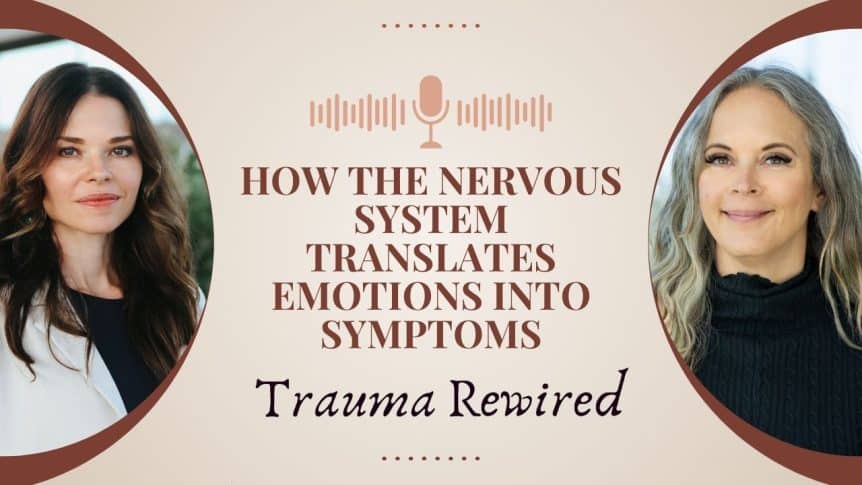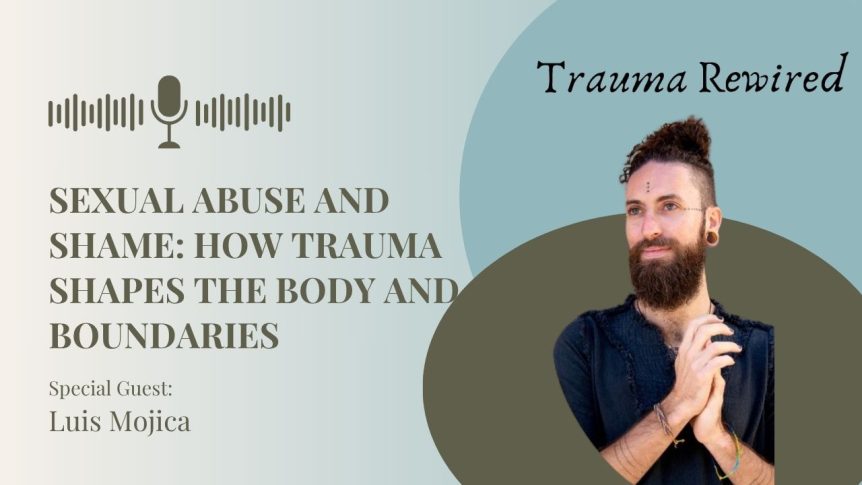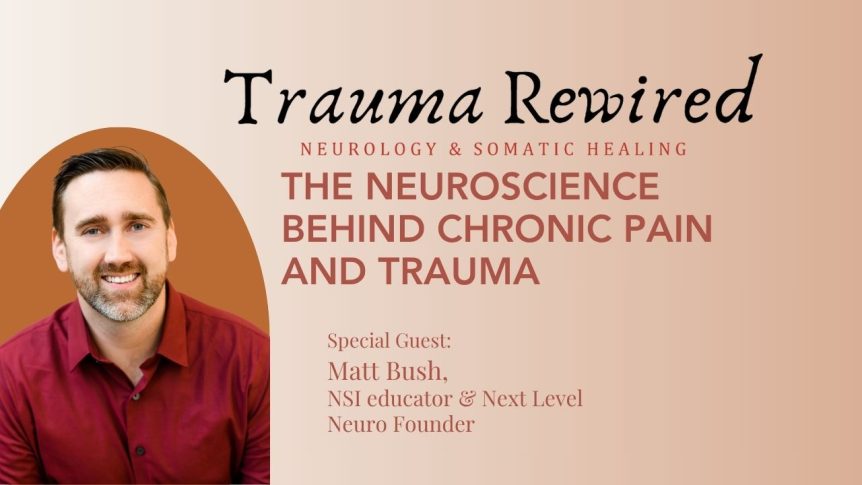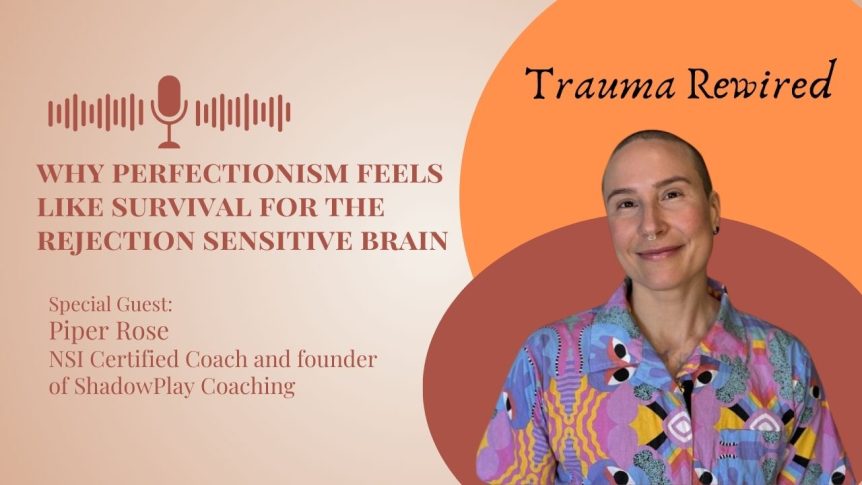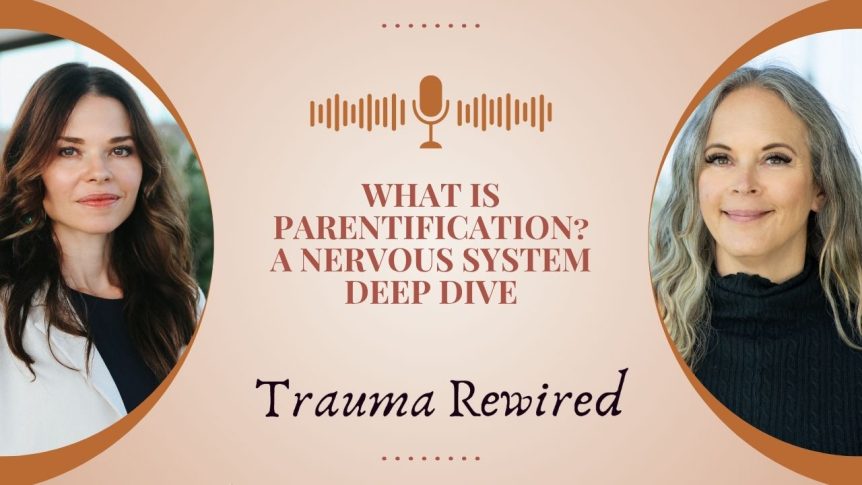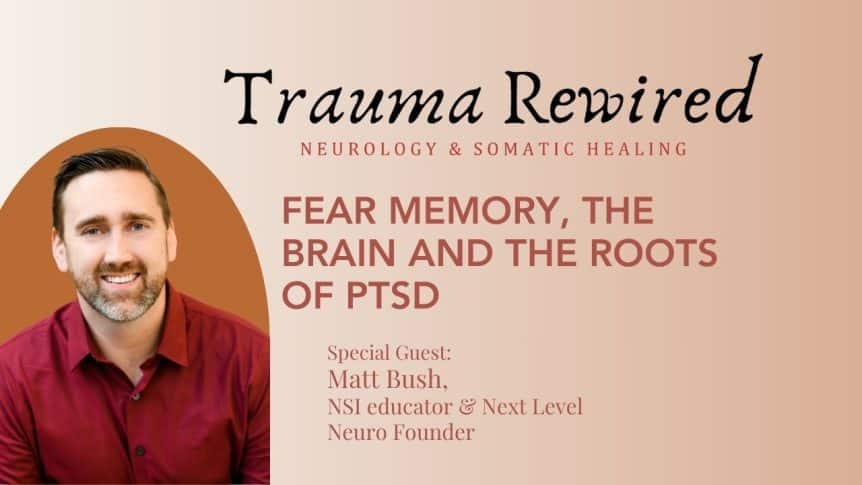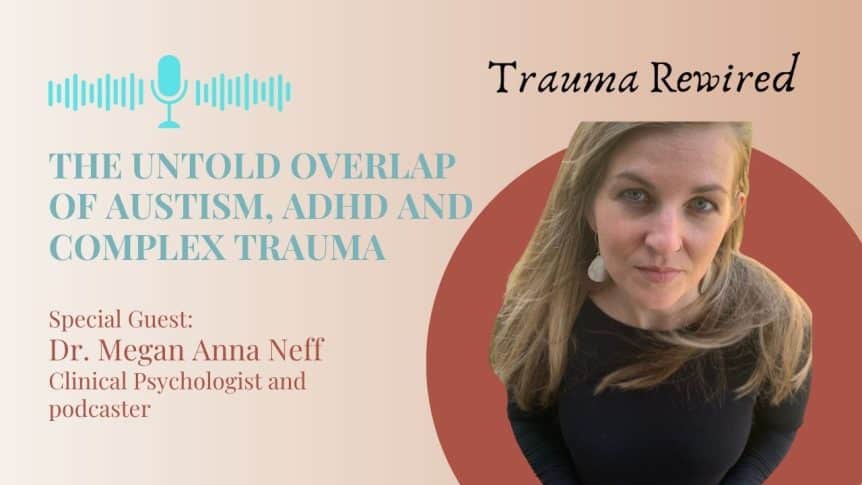What if the emotions you were never allowed to feel are the same ones making you sick? In this powerful episode of Trauma Rewired, we explore the lifelong impact of emotional neglect and suppression, and why emotional processing is often the hardest part of healing. From childhood modeling to nervous system adaptations, we break down how early emotional neglect leads …
Shame doesn’t live in your head, it lives in your body. In this deeply vulnerable and enlightening episode, somatic practitioner Luis Mojica returns to Trauma Rewired to share the biological impact of trauma, the hidden costs of fawning, and how embodiment is not about peace, it’s about presence. Together, we explore how unprocessed shame can drive chronic inflammation, gut dysfunction, …
Chronic pain isn’t just about injury, it’s a whole-body experience shaped by your brain, nervous system, and unresolved trauma. In this episode of Trauma Rewired, we are joined by Matt Bush, educator and founder of Next Level Neuro, to unpack the neuroscience of pain. Together, we explore how chronic pain is often a protective output from a dysregulated nervous system, …
What if perfectionism isn’t ambition, but a nervous system reflex for survival? In this episode of Trauma Rewired, we’re joined by returning guest Piper Rose of ShadowPlay Coaching to explore perfectionism and rejection sensitivity through a neuroscience and trauma-informed lens. We reframe perfectionism as a high-cost survival strategy rooted in complex trauma, societal conditioning, and early nervous system adaptations. Together, …
What if the invisible responsibilities you carried as a child are still shaping your adult life? In this episode of Trauma Rewired, we explore parentification—a hidden form of childhood trauma where children are forced to become the emotional or physical caretakers of their parents. Whether you managed your parent’s emotions or became “the responsible one” too early, these patterns can …
Why do some people develop PTSD after trauma while others recover? What if it’s not about the trauma itself, but the state of your nervous system when it happens? In this episode of Trauma Rewired, we’re joined again by Matt Bush, founder of Next Level Neuro and a lead educator in the Neurosomatic Intelligence program, for a deep dive into …
When we think of ADHD, we often define it as a list of symptoms: distractibility, impulsivity, hyperactivity. But what if this view is incomplete? What if ADHD is not a deficit at all, but an intelligent set of adaptations your nervous system made to survive in a world that didn’t feel safe? In this episode of Trauma Rewired, we’re joined …
When we think of autism, ADHD, or even trauma, we often place them in separate boxes, as distinct diagnoses with different treatment paths. But what if the reality is far more connected? What if complex trauma itself is a form of neurodivergence? What if masking, sensory overwhelm, and dissociation are not flaws to be fixed, but intelligent adaptations of a …
We often think of trauma healing as a personal journey, a solitary path shaped by diagnosis, insight, and effort. But what if true transformation isn’t cognitive at all? What if the real healing starts in the nervous system, in the body, and in community? In this powerful close to Season 4 of Trauma Rewired, we reflect on the deepest insights …
We often think of gut health as a matter of diet. What we eat, how we digest, and how we eliminate. But what if your digestive issues, bloating, or IBS symptoms aren’t just physical? What if your gut is holding onto unprocessed emotional trauma, stress, and nervous system dysregulation? In this episode of Trauma Rewired, we’re joined by Christy Nault, …
